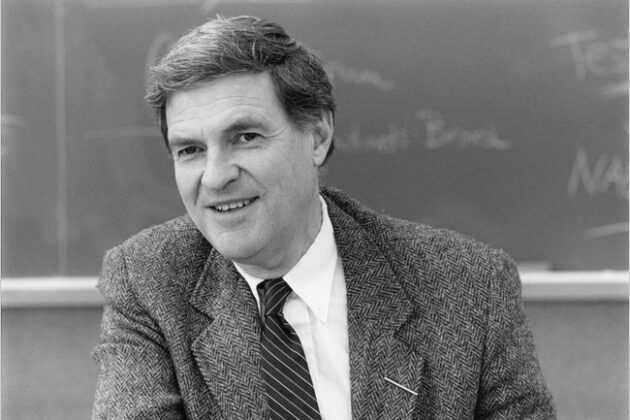David Grant, President and CEO
 We lost a great educator last week. I suspect that many of us in the boomer generation who went into teaching paused over Ted Sizer’s obituary in The New York Times with appreciation for the man who dominated our sense of what good schools – and good teaching – should be like.
We lost a great educator last week. I suspect that many of us in the boomer generation who went into teaching paused over Ted Sizer’s obituary in The New York Times with appreciation for the man who dominated our sense of what good schools – and good teaching – should be like.
One of Sizer’s metaphors was “teacher as coach.” It is a profound notion if you contrast it with the unspoken alternative in the schools where I first learned to teach – teacher as star. When you have a good coach, the students become the stars. It was at the center of Sizer’s vision of a good school – the students are the stars. As someone who experienced the seduction of the other model, I felt as if he saved me.
In one of his books, he wrote that in good schools, “students feel known and know where they are going.” Simply being known set the stage for commitment and achievement. That has affected my ideas about scale and about how communities should work ever since.
The coalition of schools inspired by Sizer’s work are called “Essential Schools,” and the adjective “essential” is most often used to modify “questions.” Sizer believed you should build your curriculum around questions that don’t have right answers. You never get to the end of essential questions, in school or in a lifetime of learning. But the pursuit of these questions is at the heart of a liberal education. Here too I feel his influence in my daily work: What is effective philanthropy? What does a humane and sustainable society look like?
My work as co-founder of The Mountain School in Vermont brought me together with Ted Sizer over the years. Once, in a speech he gave at The Putney School, he cited The Mountain School as an example of how independent schools should use their independence. For me, it might as well have been God saying, “And it was good.”
When my wife Nancy and I visited Ted at his home to talk about how to measure the impact of The Mountain School on its students – how to “prove” its effectiveness — he said, “Don’t bother. The sample is too small. The students self-select. There is no control group.” Then he grinned, “But you have your graduates. Just tell their stories.” So that’s what we did.
And I tell this story, too, the week after his death, with deep respect and gratitude.
photo: John Foraste/Brown University
